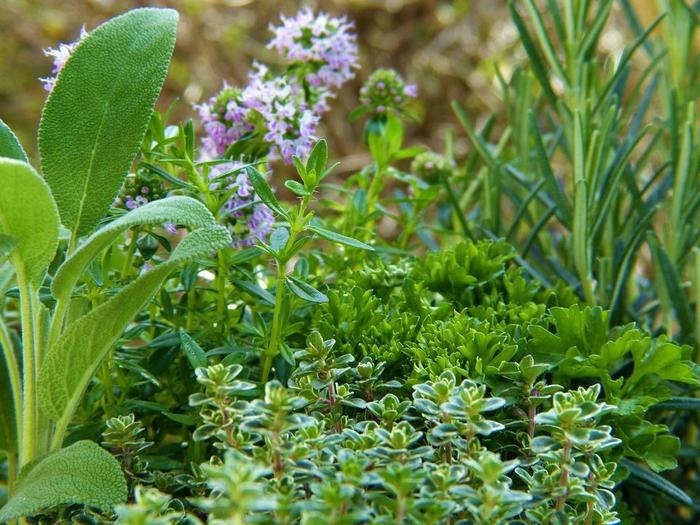Medicinal plants have played a crucial role in human health for thousands of years. Since ancient times, different cultures around the world have used a variety of plants to treat illnesses and maintain overall health. The use of medicinal plants is usually rooted in local tradition and practice, often passed down from generation to generation.
With the advent of modern medicine, many medicinal plants have been studied in depth, with their active components isolated, characterized and used to produce pharmaceutical drugs. However, in many parts of the world, especially in rural areas and in developing countries, medicinal plants are still the mainstay of health care.
Today we are going to list the main medicinal plants and what their uses are.
Main characteristics of medicinal plants
Medicinal plants have several important characteristics that contribute to their therapeutic properties.
Here is a list of some of them:
- Bioactive compounds : Medicinal plants contain a wide variety of bioactive compounds that may have beneficial effects on human health. These include alkaloids, flavonoids, terpenes, glycosides and many others. Each medicinal plant has a unique composition of bioactive compounds, which is determined by its genetics and the environmental conditions in which it grows.
- Variety of uses : Medicinal plants can be used in a variety of ways, depending on their specific properties. Some are used internally, either by ingestion or inhalation, while others are applied externally to the skin. Furthermore, the different parts of a plant (leaves, roots, flowers, bark, seeds) can have different uses.
- History of Use : Most medicinal plants have a long history of use in traditional medicine. This ancestral knowledge can provide valuable clues to modern researchers about a plant’s possible uses and benefits.
- Diversity : There is an incredible diversity of medicinal plants around the world. Each region has its own medicinal plant species, which are adapted to local environmental conditions and have been incorporated into local health practices.
- Sustainability : Medicinal plants are generally renewable resources, especially when grown sustainably. However, some medicinal plant species are threatened by overharvesting and habitat loss.
- Interaction with modern medicines : Many medicinal plants can interact with modern medicines, either increasing or decreasing their effects. It is important to consider these interactions when using medicinal plants, especially for people who are already taking other medications.
What do medicinal plants heal?

Medicinal plants have a wide range of uses and can help alleviate or treat a variety of health conditions. Despite their usefulness, they are not the solution to everything. Some plants can cause allergic reactions or interact adversely with other medications. Therefore, before using medicinal plants, it is advisable to consult a qualified health professional.
Here are the main examples:
- Digestive Disorders : Some herbs, such as peppermint and ginger, are known to help with digestion and may ease symptoms of indigestion and nausea.
- Pain and inflammation : Many plants have analgesic and anti-inflammatory properties. For example, turmeric is often used to ease inflammation, and arnica is known for its pain-relieving properties.
- Respiratory ailments : Plants such as eucalyptus and peppermint can relieve cold and flu symptoms such as nasal congestion and sore throat.
- Mental health : Some plants can help alleviate symptoms of anxiety and insomnia. For example, chamomile is often used to promote relaxation and sleep.
- Cardiovascular health : Some plants have properties that can benefit the heart and circulatory system. For example, garlic is known for its cholesterol-lowering properties, and ginkgo biloba can improve circulation.
- Skin Issues : Many plants have antibacterial and anti-inflammatory properties that can be helpful in treating a variety of skin issues. Aloe vera, for example, is often used to treat burns and skin irritations.
What are the main medicinal plants?
There are thousands of medicinal plants around the world, many of which have been used in traditional medicine for centuries. Here are some of the most well-known medicinal plants and their uses:
- Chamomile (Matricaria chamomilla) : Famous for its calming properties, chamomile is often used to relieve stress, aid sleep, and treat digestive issues like bloating and indigestion.
- Ginger (Zingiber officinale) : Ginger is known for its anti-inflammatory properties and is often used to treat nausea, motion sickness, and digestive issues.
- Garlic (Allium sativum) : Garlic has antibacterial and antiviral properties and has been used to support the immune system and cardiovascular health.
- Turmeric (Curcuma longa) : Turmeric, whose main bioactive compound is curcumin, has strong antioxidant and anti-inflammatory properties. It is used to relieve pain, especially in conditions like arthritis.
- Eucalyptus (Eucalyptus globulus) : Eucalyptus leaves are used to treat various respiratory conditions, including asthma, bronchitis, and coughs.
- Lavender (Lavandula angustifolia) : Lavender is known for its relaxing properties and is often used to help reduce stress and anxiety and promote better sleep.
- Peppermint (Mentha x piperita) : This plant is used to relieve digestive problems such as bloating and indigestion. It can also help relieve headaches.
- Aloe vera : The gel from the aloe vera plant is often used to treat various skin conditions, including burns, cuts, and eczema.
- Echinacea (Echinacea purpurea) : Echinacea is often used to boost the immune system and help the body fight infections.
